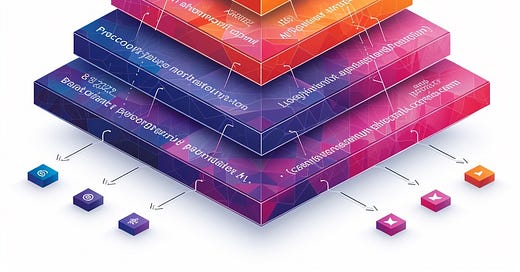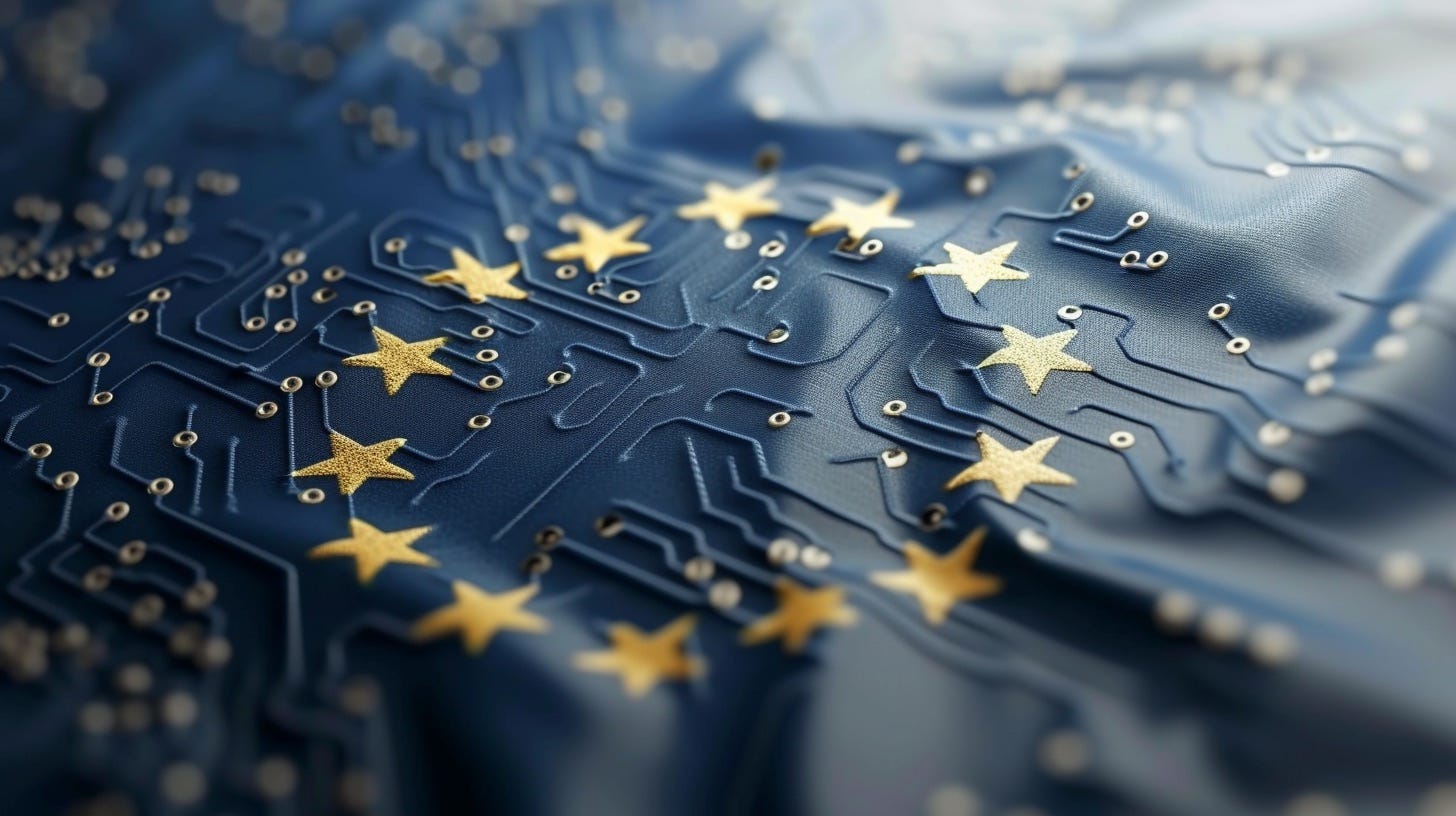Housekeeping
I’m in the process of planning some workshops for paid subscribers. If there’s a topic or question you’d like to see covered, let me know!
Levels of AGI
According to a new Bloomberg report, OpenAI has developed a five-level system to track its progress toward building AGI.
Why it matters:
The levels range from "Chatbots" (conversational software) to "Organizations" (AI that can do the work of an entire team or company).
OpenAI believes its models are currently at Level 1, but are on the cusp of Level 2: "Reasoners," or AI that can solve problems as well as a graduate-level human.
But defining "intelligence" is a really, really difficult thing to do - some technologies arguably qualify for levels 2 or 3 today in this framework. Other research has defined AGI across multiple axes, such as “generality” and “autonomy.”
Elsewhere in frontier models:
A new Google DeepMind paper showcased how Gemini's 1M token context window makes Google's robots better at navigation and task completion.
Anthropic released new developer tools to generate prompts, write tests, and iterate on your results.
And not one but two Paris-based AI labs released new models: Kyutai demoed its multimodal assistant Moshi and Bioptimus released H-optimus-0, an open-source model aimed at disease diagnosis.
Elsewhere in OpenAI:
OpenAI and Los Alamos National Laboratory announced a partnership to evaluate how scientists can safely use multimodal AI models in lab settings.
Sam Altman and Arianna Huffington partnered for Thrive AI Health, a new startup backed by OpenAI to build a "hyper-personalized AI health coach."
The CEO of The Atlantic explains why the 167-year-old publication signed a licensing deal with OpenAI.
Are we in an AI bubble?
In recent weeks, a few new analyses have continued to ask how AI companies will justify their valuations and spending.
Between the lines:
Investors and journalists alike point out that the AI industry needs hundreds of billions in revenue to recoup its costs, while individual company valuations are getting harder to justify.
OpenAI is pulling in (an estimated) $3.4B in revenue, but it's far and away the largest revenue generator. GitHub Copilot, for comparison, is "only" generating $100M-150M in ARR.
Still, some investors are eager to throw more money at AI. SoftBank has a $10B+ plan to enter the AI race, while a16z is hoarding thousands of GPUs to rent to portfolio companies.
Elsewhere in the FAANG free-for-all:
AWS launched App Studio, an AI-powered service that lets enterprise users go from text prompts to internal apps.
YouTube's updated Erase Song tool allows creators to detect and remove copyrighted music without affecting other audio.
And Microsoft agreed to buy a record 500K carbon credits to offset its emissions amid AI's surge in energy consumption.
EU AI Act
The full and final text of the EU AI Act was published today. The new law will come into effect on August 1st - less than three weeks from now.
What to watch:
The framework puts different obligations on AI developers, depending on use cases and perceived risk. Most AI uses are fine, but a few are outright illegal.
"High risk" use cases - including AI used in law enforcement, employment, education, and critical infrastructure - will require developers to meet data quality, anti-bias, and other safety standards.
Many of the most onerous requirements will not be enforced until early 2025, with full enforcement planned for mid-2026.
Elsewhere in AI and the law:
A judge dismissed nearly all claims in a lawsuit accusing GitHub, Microsoft, and OpenAI of copying code from developers - though he sustained claims of open-source license violation and breach of contract.
A bipartisan group of senators introduced the COPIED Act, which would make removing digital watermarks illegal to protect artists and authors from unauthorized AI model training.
And the Department of Justice seized nearly 1,000 Twitter accounts used to promote Russian misinformation with AI avatars and LLM-generated tweets.
Things happen
Researchers say Glaze (an anti-AI tool for artists) can be cracked. Kenya's anti-government protestors built a Corrupt Politicians GPT. SoftBank acquires UK AI chipmaker Graphcore. How good is ChatGPT at coding, really? After losing to AlphaGo, Go world champion Lee Saedol now gives lectures about AI. Has AI co-opted the sparkle emoji? AMD to buy Finnish start-up Silo AI for $665M. Tesla prioritizes Musk's and other VIP driver data to train self-driving software. Quora’s Poe now lets users create and share web apps. A study shows ChatGPT is better at solving older coding problems than newer ones. ElevenLabs launches Voice Isolator. Google considered limiting AI Overviews to its own mobile apps. Generative AI sparks deals in contract lifecycle management software. If AI chatbots are the future, I hate it. The current hype around AI is a slap in the face for creatives. Fabric: an open-source framework for augmenting humans using AI. Why Vivaldi browser won't follow the current AI trend. Google claims a new AI training technique is drastically faster. RouteLLM: A framework for serving and evaluating LLM routers. Markdown: An effective tool for LLM interaction. 4chan is using ByteDance's hidden AI app to generate porn. AI finds that AI is great in Tony Blair Institute research. A beloved tech blog is publishing AI articles under old staff names. The King of Chum. UK politician accused of being AI is actually a real person. The Washington Post made an AI chatbot for climate questions. Ray Kurzweil still plans to merge with AI. Tesla is reportedly delaying its robotaxi reveal until October. What is AI? 'Visual' AI models might not see anything at all. Vimeo joins YouTube and TikTok in launching new AI content labels. Why the AI industry should want regulation now. Humane execs leave to found AI fact-checking startup. Tokens are a big reason today's generative AI falls short. India will need 1M+ engineers with advanced AI skills over the next few years. A survey shows China leads in generative AI adoption.








